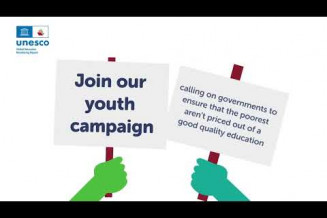Non-state actors in education: Who chooses? Who loses?
This report is written in partnership with the Global Student Forum to help you learn about the youth perspective on the different roles and impact of non-state actors in education. For many, a discussion on the role of non-state actors in education quickly boils down to a debate about whether private schools support or undermine education systems.
Those who support non-state activity in education argue that it is inevitable since the state cannot cater for the full range of parental demands for education. They argue that non-state actors are better suited to be innovative and to provide tailored solutions to meet the needs even of marginalized groups. They point to the many cases where non-state actors have filled genuine gaps in education provision, often for disadvantaged groups neglected by public systems.
Those who oppose non-state activity point to problems caused by school choice. If parents can choose the school they want, without any guiding regulations, then the richest are most likely to be able to afford the best, often non-state schools, exacerbating inequality and segregation.
As this report shows, the role of non-state actors impacts many more corners of the education sector, from the textbooks you use, the food in your canteens, any additional tutorial support you get, the skills you might learn at work and much more.
The Report invites youth to reflect on the findings of the 2021/2 Global Education Monitoring Report and join a call for governments to #RightTheRules which will ensure that non-state actor involvement does not compromise the promise of providing 1 year of pre-primary and 12 years of primary and secondary education free for all.




